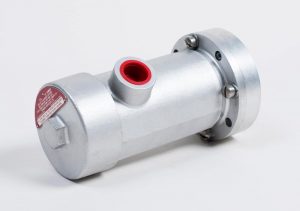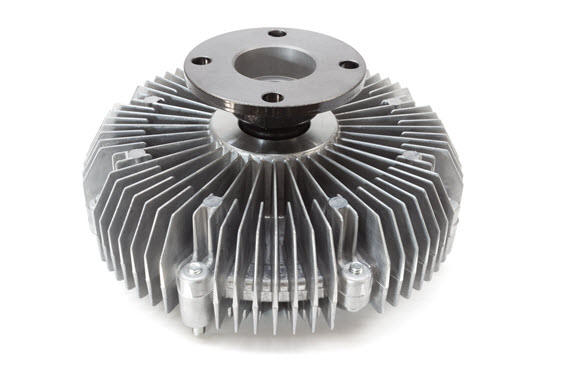Understanding the Function of Aluminum Foundry in Creating High-Quality Steel Products
Aluminum foundries are vital in the production of premium steel items. They use various casting strategies, such as sand and pass away spreading, to achieve precision and longevity. With extensive quality assurance measures in location, these centers ensure that their products satisfy market requirements. As markets advance, the function of Aluminum shops proceeds to adjust. This elevates questions about future technologies and sustainability practices that may redefine their impact.
The Aluminum Casting Process: Technologies and strategies
The Aluminum spreading procedure has developed substantially, integrating numerous methods and advancements that enhance performance and item top quality. Traditionally, approaches such as sand casting and pass away spreading were primary; nonetheless, innovations have introduced procedures like financial investment spreading and low-pressure die casting. These developments enable suppliers to attain elaborate layouts and tighter resistances, lowering material waste and enhancing total efficiency.
The combination of computer-aided style (CAD) and simulation software enables for even more precise modeling and testing, making sure that potential problems are recognized early in the manufacturing cycle. Aluminum Foundry. In addition, innovations in alloy formulas result in boosted mechanical residential or commercial properties and rust resistance
These growths not only streamline production however likewise advertise sustainability by lessening power consumption and discharges. As the sector continues to welcome new technologies, the Aluminum spreading process stays a critical element in generating top quality steel products that fulfill diverse market demands.
Applications of Aluminum in Numerous Industries
Aluminum's adaptability and desirable residential properties make it a beneficial product throughout various industries. In the automotive market, Aluminum is widely used for its light-weight characteristics, adding to improved gas efficiency and efficiency. The aerospace industry likewise benefits, as light weight aluminum's high strength-to-weight ratio improves airplane design while maintaining safety and security criteria.
In building and construction, Aluminum is preferred for its durability and resistance to rust, making it suitable for home window frameworks, roof, and architectural components. The packaging sector leverages light weight aluminum's safe nature and recyclability, particularly in food and drink containers, guaranteeing safety and sustainability.
Additionally, the electric market utilizes Aluminum for its outstanding conductivity in circuitry and transmission lines. The durable goods field makes use of Aluminum in items varying from kitchen area utensils to electronic devices, emphasizing its flexibility. Aluminum plays a vital role in improving functionality, performance, and sustainability across varied applications.
Advantages of Using Aluminum Over Various Other Steels
While several steels are utilized in numerous applications, Aluminum stands apart because of its unique combination of residential or commercial properties that offer a number of advantages over various other materials. Its lightweight nature substantially reduces transport expenses and energy intake, making it perfect for industries such as automotive and aerospace. Aluminum's superb corrosion resistance enhances longevity, prolonging the life of products and minimizing maintenance demands. Additionally, it exhibits high thermal and electric conductivity, making it suitable for electrical and thermal administration applications.
The metal's pliability allows for complex shapes and detailed designs, offering versatility in producing processes. Furthermore, Aluminum is 100% recyclable without loss of quality, advertising sustainability and lowering environmental effect. Wisconsin Aluminum Foundry. These qualities, combined with its fairly affordable contrasted to various other steels, position Aluminum as a preferred option throughout different sectors. Generally, the benefits of Aluminum add to its increasing popularity in the manufacturing of top quality steel items

High Quality Control Actions in Aluminum Foundries
Quality control procedures play an important duty in the Aluminum Foundry process, guaranteeing that the final products satisfy rigorous industry standards and customer expectations. These measures generally start with product examination, where raw Aluminum is reviewed for pureness and make-up. As soon as the spreading procedure starts, temperature control is important; maintaining ideal molten steel temperatures prevents issues such as porosity and contraction.
Furthermore, non-destructive testing (NDT) methods, including ultrasonic and radiographic inspections, are employed to detect inner flaws without harming the spreadings. Visual evaluations are likewise carried out at various phases to identify surface imperfections.
Furthermore, adherence to recognized top quality administration systems, such as ISO requirements, is vital for maintaining uniformity and traceability throughout the production procedure. Normal audits and staff member training on top quality criteria pop over to these guys contribute to an overall society of quality, guaranteeing that the products not only fulfill yet exceed client assumptions in performance and toughness.
The Future of Aluminum Foundries: Trends and Sustainability
As the Aluminum Foundry industry advances, arising patterns and an emphasis on sustainability are reshaping its landscape. Enhancing demand for lightweight and durable materials in industries like auto and aerospace drives development in Aluminum spreading techniques. Advanced innovations, such as expert system and automation, are improving manufacturing effectiveness and precision while reducing waste.
Sustainability is becoming an extremely important concern, triggering factories to carry out eco-friendly methods, consisting of reusing Aluminum scrap and making use of renewable resource view resources. The change in the direction of circular economic climate concepts motivates shops to decrease ecological influence while satisfying customer assumptions for lasting products.
Furthermore, regulative pressures are pressing the market towards cleaner operations, cultivating partnership between manufacturers and ecological companies. As these patterns assemble, the future of Aluminum factories will likely be characterized by a dedication to effectiveness, quality, and sustainability, guaranteeing their relevance in an open market.
Frequently Asked Inquiries
What Are the Ecological Effects of Aluminum Foundries?
Light weight aluminum factories contribute to ecological effects with power usage, greenhouse gas emissions, and possible air and water contamination. Additionally, mining bauxite for Aluminum can bring about habitat devastation and soil degradation, influencing regional communities.

How Do Factories Make Certain Worker Security Throughout Manufacturing?
Foundries apply rigorous safety procedures, consisting of safety tools, air flow systems, and regular training. They conduct danger assessments and preserve safety and security standards to decrease hazards, making certain a safer working environment for workers throughout the manufacturing procedure.
What Qualifications Should a Light Weight Aluminum Foundry Have?
A light weight aluminum Foundry need to have accreditations such as ISO 9001 for top quality monitoring, ISO 14001 for ecological administration, and OSHA compliance for safety standards. These certifications assure adherence to sector laws and dedication to high quality and security methods.
Exactly How Does Aluminum Recycling Affect Foundry Workflow?
Aluminum recycling considerably improves Foundry operations by providing an economical resources resource, lowering energy consumption, and minimizing environmental influence - Aluminum Castings. It also motivates sustainable methods, allowing factories to preserve competitiveness in a rapidly advancing market
What Are Usual Issues in Aluminum Castings?
Typical flaws in Aluminum castings include porosity, contraction, incorporations, and surface area flaws. These concerns can emerge from inappropriate mold and mildew design, insufficient putting methods, or contamination during the melting and spreading procedures, impacting total item quality.
